Political Science MCQs
Vladimir Lenin MCQs

1) Which one of the following theories held that the State is a product and manifestation of the irreconcilability of class antagonisms?
(a) Evolutionary Theory
(b) Anarchist Theory
(c) Marxist-Leninist Theory
(d) Guild-Socialist Theory
Answer: (c)
2) “The Development of Capitalism in Russia was written by: (CSS-2005)
(a) Lenin
(b) Friedrich Engels
(c) Mao-Tung
(d) None of these
Answer: (a)
3) Which one of the following pairs giving names of authors. and their books is not correctly matched?
(a) Hitler : Mein Kampf
(b) J.S. Mill : Utilitarianism
(c) Laski : A Grammar of Politics
(d) Lenin : Communist Manifesto
4) Lenin reached the conclusion that the disintegration of capitalism would begin in the:
(a) Industrial heartland
(b) Tsarist Russia
(c) Colonial periphery
(d) USA
Answer: (c)
5) Lenin’s first important theoretical work relates to:
(a) Factors of production
(b) Organization of the party
(c) Industrial economy
(d) Peasant movements
Answer: (c)
6) Vladimir Ilyich Ulyanov, was born in
(a) 1857
(b) 1870
(c) 1894
(d) None of these
Answer: (b)
7) In January 1905, the Bloody Sunday massacre of protesters in St. Petersburg sparked a spate of civil unrest known as the
(a) Revolution of St. Petersburg
(b) Revolution of 1905
(c) St. Petersburg Movement
(d) None of these
Answer: (b)
8) Lenin became interested in revolutionary socialist politics following his brother’s execution in
(a) 1888
(b) 1887
(c) 1874
(d) None of these
Answer: (b)
9) Lenin was masterminded the Bolshevik take-over of power in Russia in
(a) 1919
(b) 1924
(c) 1917
(d) None of these
Answer: (c)
10) Lenin died on
(a) 24 January 1922
(b) 24 January 1925
(c) 24 January 1924
(d) None of these
Answer: (c)
11) One of the first moves of Lenin’s government was to ban
(a) All opposition parties.
(b) All opposition press.
(c) All opposition leaders
(d) None of these
Answer: (b)
Mao Zedong MCQs

1) Who among the following propagated the idea of Cultural Revolution under Socialism?
(a) Karl Marx
(b) Mao-Tse-Tung
(c) V.I. Lenin
(d) J. Stalin
Answer: (b)
2) The Long March began the ascent of power of: (CSS-2011)
(a) Mao Zedong
(b) Chiang Kai Shek
(c) HoChi Minch
(d) None of these
Answer: (a)
3) Mao Zedong ruled as an autocrat styled the Chairman of the Communist Party of China from its establishment in 1949, until his death in
(a) 1974
(b) 1975
(c) 1976
(d) None of these
Answer: (c)
4) Mao adopted Marxism–Leninism while working at
(a) Peking University
(b) Wuhan University
(c) Jiao Tong University
(d) None of these
Answer: (a)
5) On October 1, 1949, Mao proclaimed the foundation of the
(a) People’s Republic of China
(b) Kuomintang
(c) People’s Liberation Army
(d) None of these
Answer: (a)
6) The People’s Republic of China was established on
(a) October 1, 1950.
(b) October 1, 1949.
(c) October 1, 1951.
(d) None of these
Answer: (b)
7) Mao himself claimed that a total of 700,000 people were killed in attacks on “counter-revolutionaries” during the years
(a) 1950–52
(b) 1944–49
(c) 1949–52
(d) None of these
Answer: (a)
8) In January 1958, Mao launched the second Five-Year Plan, known as the
(a) Guideline
(b) Socialist market economy
(c) Great Leap Forward
(d) None of these
Answer: (c)
Explanation: Under the Great Leap Forward, Mao and other party leaders ordered the implementation of a variety of unproven and unscientific new agricultural techniques by the new communes. The combined effect of the diversion of labor to steel production and infrastructure projects, and cyclical natural disasters led to an approximately 15% drop in grain production in 1959 followed by a further 10% decline in 1960 and no recovery in 1961
9) On August 4, 1968, Mao was presented with some mangoes by the Pakistani foreign minister, Syed Sharifuddin Pirzada, in an apparent diplomatic gesture. Mao called the mangoes
(a) The Mango Bomb
(b) Spiritual time bomb
(c) Walking time bombs
(d) None of these
Answer: (b)
Antonio Gramsci MCQs

1) Who among the following thinkers has attempted to apply structuralism to the study of Marxist socialism?
(a) Gramsci
(b) Horkheimer
(c) Sartre
(d) Althuseer
Answer: (d)
2) Who among the following theorized civil society as an ideological domain?
(a) Karl Marx
(b) Hegel
(c) Antonio Gramsci
(d) Noam Chomsky
Answer: (c)
3) Antonio Gramsci was born in
(a) 1890
(b) 1891
(c) 1892
(d) None of these
Answer: (b)
4) Gramsci is best known for his theory of
(a) Ricardian socialism
(b) Hegemonic stability theory
(c) Cultural hegemony
(d) None of these
Answer: (c)
5) What was Gramsci’s term for cultural consensus supporting capitalism?
(a) Universalism
(b) Hegemony
(c) Discourse
(d) None of these
Answer: (b)
6) Gramsci was one of the most important Marxist thinkers of the 20th century, and a particularly key thinker in the development of
(a) Academic Marxism
(b) Western Marxism
(c) Orthodox Marxism
(d) None of these
Answer: (b)
7) Hegemony was a term previously used by Marxists such as
(a) Louis Althusser
(b) David Easton
(c) Vladimir Ilyich Lenin
(d) None of these
Answer: (c)
8) Gramsci’s theory of hegemony is tied to his conception of the
(a) Capitalist state
(b) Republic state
(c) Democratic state
(d) None of these
Answer: (a)
9) Gramsci, like the early Marx, was an emphatic proponent of
(a) Determinist philosophy
(b) Historicism
(c) Metaphysical materialism
(d) None of these
Answer: (b)
10) Which or who of the following is not associated with the cultural studies approach?
(a) David Easton
(b) Antonio Gramsci
(c) Louis Althusser
(d) None of these
Answer: (a)
11) What is Antonio Gramsci’s view of power?
(a) It comes out of a barrel of a gun
(b) It is a mixture of coercion and consent
(c) It is purely economic
(d) All of the above
Answer: (b)
Explanation: Gramsci adopts the Machiavellian view of power as “half beat, half man” implying that power not only comes from coercion and dominance but also from achieving consent and the establishment of a “common sense” that most parts of society can identify with
12) Gramsci shifted the focus of Marxist analysis through which of the following ideas?
(a) Gramsci shifted the focus of Marxist analysis through which of the following ideas?
(b) That consent for a particular social and political system was produced and reproduced through the operation of hegemony
(c) None of these
Answer: (b)
Explanation: Gramsci’s notion of hegemony explains how the moral, political, and cultural values of the (economically) dominant group become dispersed and accepted throughout society; hence, it explains within a Marxist framework how susceptible a society is to change and transformation.
- Political Science MCQs for CSS, PCS | Introduction (Set-I)
- Daily Top-20 MCQs for CSS, PMS, PCS, FPSC (Set-24)
- Political Science MCQs (Vladimir Lenin, Mao Zedong, Antonio Gramsci)
- Political Science MCQs (Foreign Policy of Pakistan)
- Political Science MCQs | Karl Marx
- 200 Most Wanted Political Science MCQs (One Liner)
- Political Science MCQs | John Stuart Mill, Jeremy Bentham
- Political Science MCQs | (Immanuel Kant MCQs)
- Political Science MCQs | (Jean-Jacques Rousseau MCQs)
- Political Science MCQs for CSS | John Locke MCQs

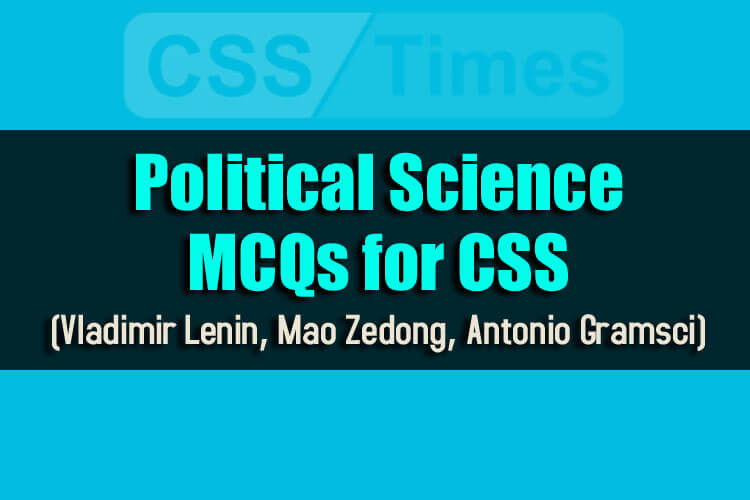

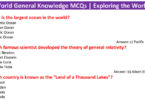
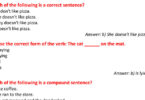
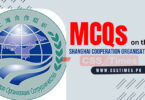
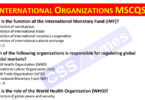

Please make more mcqs on USA history CRIMINOLOGY,punjabi